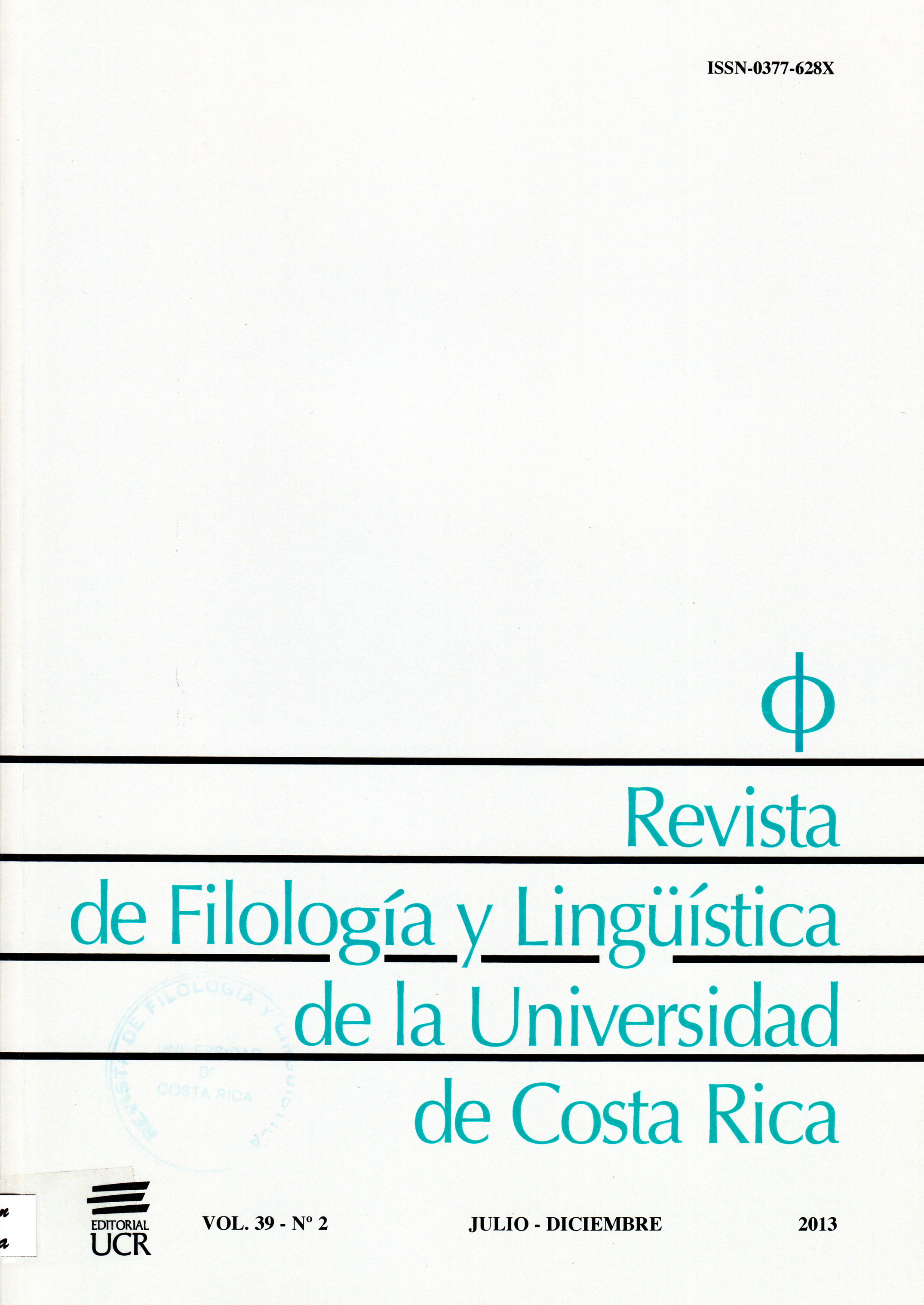Abstract
This article seeks to analyze a presidential speech by relating certain categories of Halliday’s (2004) systemic functional grammar to the strategic functions of political discourse proposed by Chilton and Schäffner (2006). The goal is to show how the manipulation of discourse, the establishment of relationships dictated by power, the representation of agents and the misrepresentation of certain issues compared to other are instantiated by the linguistic resources speakers can select.References
Chilton, P. y C. Shäffner. 2006. “Discourse and Politics”. En: van Dijk (Ed.), 303-330.
Chinchilla, L. 2010. “La batalla contra el narcotráfico nos exige mucho más”. La Nación (Opinión). 24/09. http://www.nacion.com/2010-09-24/Opinion/Foro/Opinion2532745.aspx
Flórez-Estrada, M. 2010. “La campaña de Laura Chinchilla y las mujeres ¿oportunismo o compromiso con un nuevo pacto sexual?”. Revista de Ciencias Sociales. 130: 85-99.
Givón, T. 1984. Syntax: A functional-typological introduction. Vol. 1. Amsterdam: John Benjamins.
Halliday, M.A.K. 1973. Explorations in the functions of language. London: Arnold. 2004. An Introduction to Functional Grammar. London: Hodder Headline Group.
Halliday M.A.K. y C. Matthiessen. 2006. Construing experience through meaning: a language-based approach to cognition. London: Continuum.
Lakoff, G. y M. Johnson. 1998. Metáforas de la vida cotidiana. Madrid: Cátedra. van Dijk, T. 1997. Racismo y análisis crítico de los medios. Barcelona: Paidós. 2006. Discourse Studies, a multidisciplinary introduction. London: Sage.

